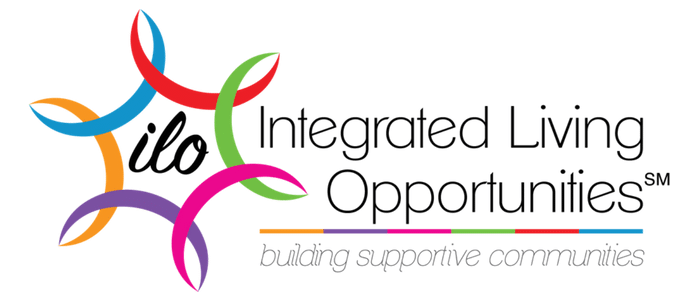Thursday, March 1, 2018
Written by Barbara Goldschmidt
The Twitter feed was #sexEd4all. And more than 150 people—government employees, teachers, non-profit advocates, parents, and students—had gathered for the event. The half day workshop, titled “World Café: A Convening on Sex Education and Creating Healthy Relationships for DC Youth with Disabilities”, gave participants the opportunity to have a conversation long overdue.
Held at the Edlavitch Jewish Community Center (EDCJCC) in Washington, DC, this ground-breaking event focused on the need for better information and education around sex, safety, and healthy relationships for young adults with cognitive disorders. Organized by the Inclusion and Disability Program at “The J” (as it is affectionately called), the program was set up as an opening panel discussion followed by round table sessions. There were no questions and answers; only questions and questions. But they needed to be asked.
We Want to Start a Movement
Molly Whalen of the District of Columbia Association for Special Education (DCASE) started the day by welcoming everyone with the bold notion that “We want to start a movement”. Her statement captured the feeling that seems to be permeating our culture right now: that honesty about desires and appropriate ways to express them—in workplaces, schools, and homes—can be revolutionary. Addressing the need for connection and affection can be difficult for anyone, but daunting for anyone with a cognitive disorder. As people at this event spoke, it became apparent that there is little guidance on the topic for educators, therapists, and parents on how to address these needs in safe and realistic ways. By the end of the morning, we had pledged to change that.
Here are some of the highlights from the event, held February 21, 2018 at the EDCJCC.
- Psychiatrist Lance Clawson, panel moderator, emphasized that the prerequisite for a satisfying sexual relationship is a shared connection. His probing questions made us aware that intimacy—for anyone—probably won’t happen without laying a foundation:
- How do you enter a relationship?
- How do you generate feelings of closeness?
- How do you maintain a relationship? Consistency is key to a satisfying connection.
He emphasized that with developmental disorders, it’s important to have ongoing conversations, as an individual’s ability to comprehend will change over time.
- The panelists—fitness coach Reggie Howard, educator Rickita Perry, and Jillian Copeland, founder of Main Street Connect, addressed the challenges to intimacy that so-called “neurotypicals” may not face. These include:
- Issues around touch, sensory impairment, and the need to be concrete may create barriers.
- Peer-to-peer information may not be available.
- Parents need support in helping to understand how to address questions that come up.
- All agreed on the need for more education, which brought up more questions:
- What are the rules around sexuality (e.g. private vs. public behavior)?
- What are best practices in teaching the subject?
- Who will create the curriculum, being that disabilities are so diverse?
One of the attendees was Joseph Shapiro, a reporter from NPR who has been doing a recent series on sexual assault of people with intellectual disabilities. According to his research, people with cognitive disorders are sexually assaulted at a rate that is seven times that of the people without disabilities. Another participant said that 60% of people with disabilities will experience violence in a sexual relationship. One of the best ways to protect anyone against predatory behavior is by providing more information about sexuality and safe practices. Support from friends and professionals will also help.
One of the lessons from the #metoo movement is how widespread sexual harassment is and how hard it can be to talk about it. The same seems to be true for young adults with special needs. One of the high school students participating in a round table discussion asked, “How can I say “no” to someone who is pressuring me to have sex? “ And a young man wanted to know how he could safely ask permission. What was shocking to learn was that they had had one class on sexuality in eighth grade and nothing at all in high school classes.
Summaries, with pledge cards for participating in next steps, included:
- Have direct conversations that demystify human sexuality; talk about the ideal as well as the problems (e.g., don’t just talk about diseases and unwanted pregnancy). Conversations need to be approached respectfully for both speaker and listener.
- Create safe spaces where young people can ask questions of professionals as well as peers.
- Have a curriculum throughout the high school years.
- Discussions need to be concrete and not abstract.
- The family, educators, medical community, and policy makers need to get onboard with sex education for all.
- Need a healthy online source to find out about sexual relationships.
- Practice asking for consent whenever you assist someone with a disability, for example when helping them take off their coat, to teach boundary awareness.
As I walked back to my workplace along downtown DC streets I passed one of the many sites where construction was taking place. Looking down into it reminded me that every new building begins as a hole in the ground. It may be messy, daunting and empty at first, but that’s how you start, by making a space for the foundation. We had made a space for something new to take place.
Read Barbara Goldschmidt’s earlier blog on love and special needs.
